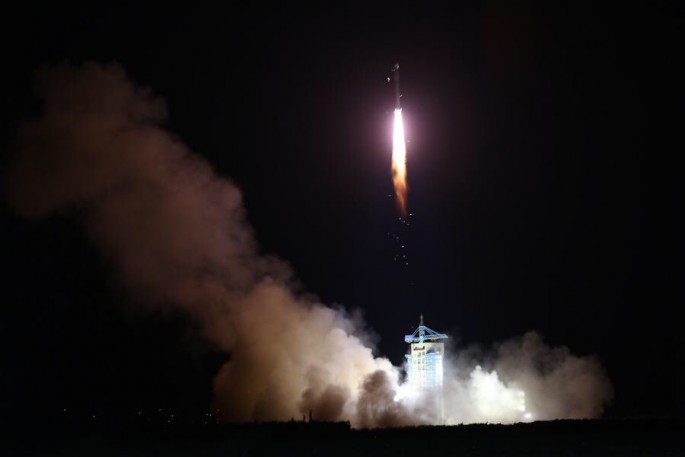China launched the first-ever quantum satellite on August 15, Monday in an attempt to develop a hack-proof communications system. The Quantum Experiments at Space Scale (QUESS) spacecraft on a Long March-2D rocket lifted off from the Jiuquan Satellite Launch Center in the Gobi Desert of north-west China. During its two-year mission the space object will transmit un-hackable encryption keys from outer space to the Earth's surface.
Xinhua is China's state-run news agency. It stated that the 1,320-pound (600-kg) QUESS satellite is built to circle Earth at an altitude of around 310 miles (500 km) and complete one lap every 90 minutes, according to Space.
The news agency reported that QUESS will provide new knowledge about quantum entanglement. That happens when pairs or groups of very tiny particles are made or work together so the quantum state of each particle is part of a whole system.
Entangled particles stay closely linked to each other even when they are separated by billions of miles of space. A change in one particle enigmatically affects the others.
Xinhua reported that QUESS will use entangled photons via a special laser to transmit messages to ground stations in China and Austria. In theory such systems are safe from hack attacks. An attempt to intercept an encryption key would cause a change in the photons' state that could be picked up, according to BBC
If the experiment works it could solve the main problem of distributing encryption keys that cannot be stolen. That would result in hack-proof communications.
Many countries are working on quantum communications, including fiber-optic quantum key distribution networks in the United States, Europe, and China. However, China is the first one to launch a satellite to develop the complex technology.
Xinhua stated QUESS will also test "quantum teleportation" by beaming data about particles from the satellite to a Tibet ground station.
Austrian physicist Anton Zeilinger first proposed the quantum physics project to the European Space Agency (ESA) in 2001 but was turned town. He is now part of QUESS.
The satellite is named "Micius". He was a Chinese scientist and philosopher who did ground-breaking optical experiments during the 5th century B.C. Micius writings also include the sentence that motion stops because of an opposing force, which was penned before Isaac Newton's first law of motion.
The news agency reported that the world's first quantum satellite was named after a famous scholar. It is like NASA's Galileo (Galilei) Jupiter probe and (Johannes) Kepler space telescope.
This video explains quantum entanglement:



























